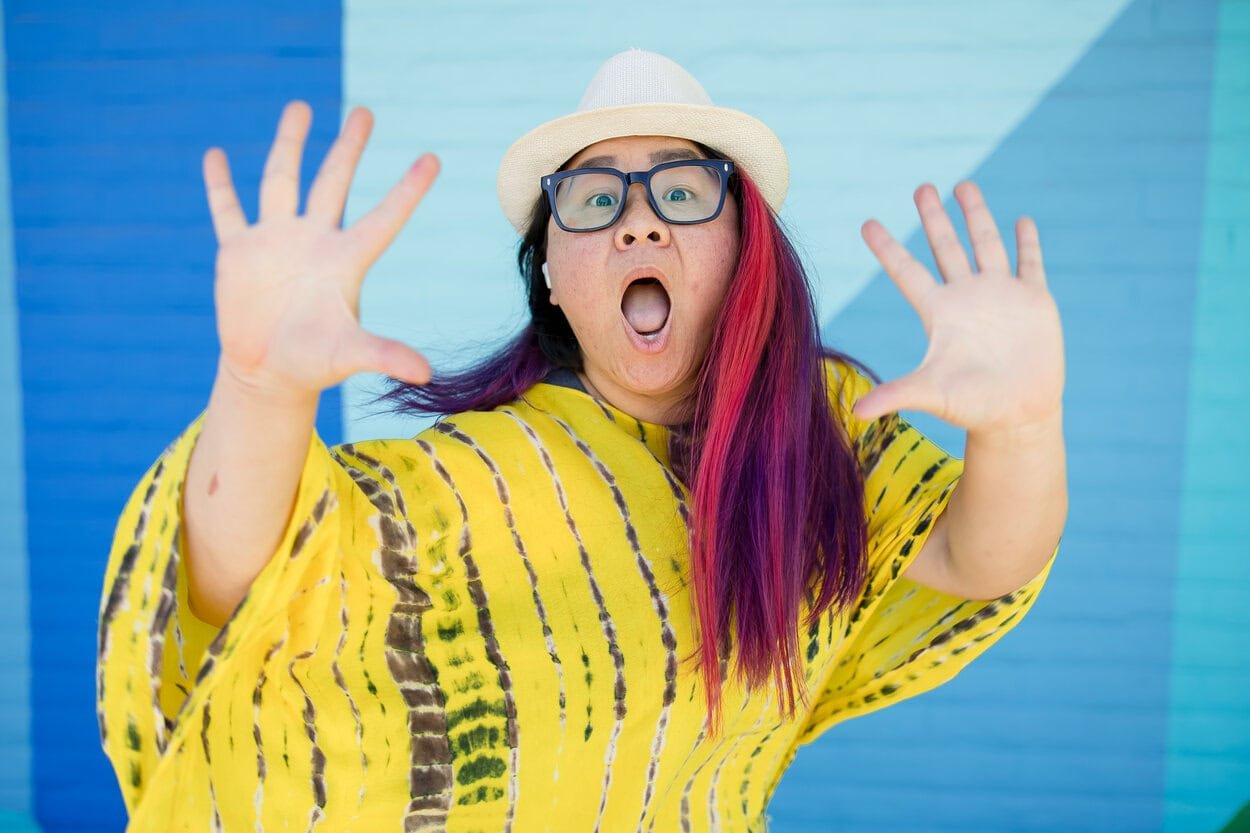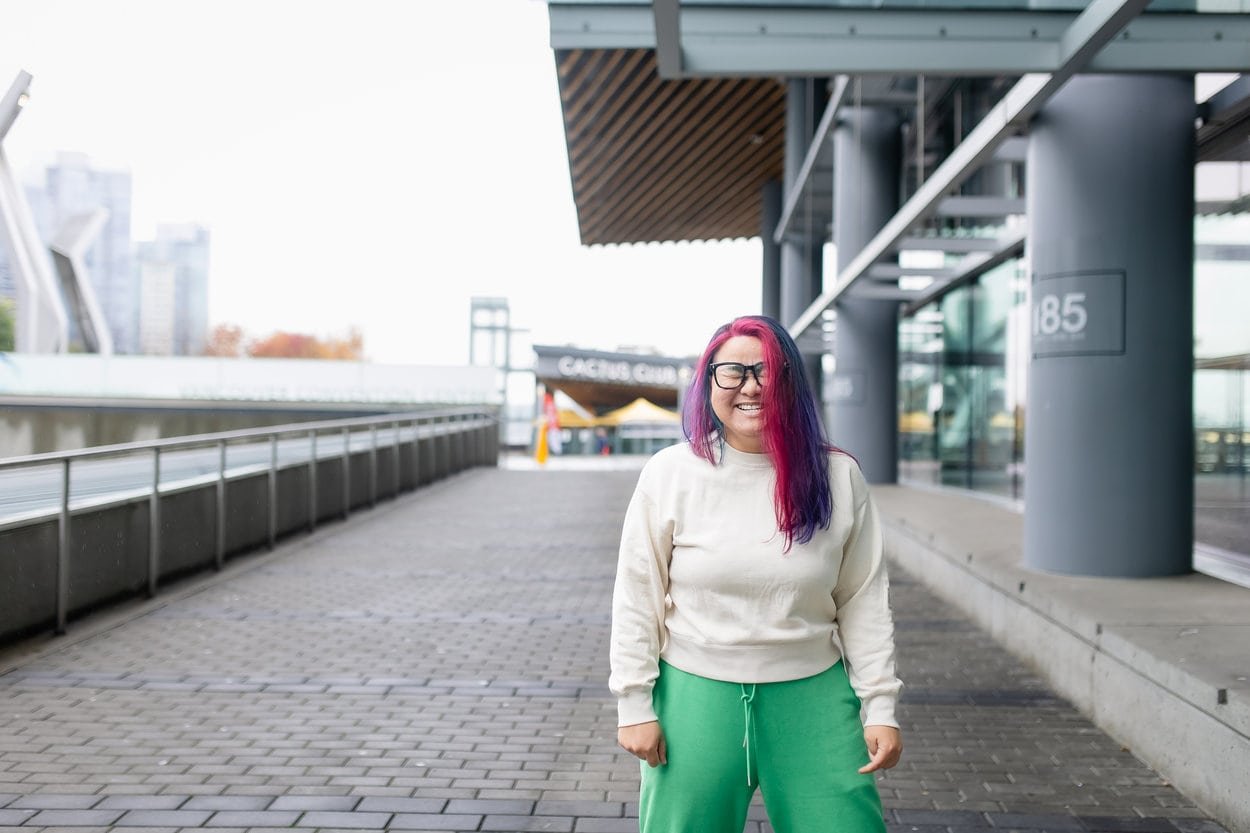
Therapy FAQ
You might be feeling ready, maybe even excited, to begin a journey of discovering yourself.
You know in your heart that you don’t want to do it alone. Still, choosing the right person to walk with you can feel confusing or overwhelming.
I get that.
This therapy FAQ is here to offer clarity and a few grounding answers to support you along the way.
-
This is a question I got asked a lot every now and then
All of these terms sometimes are used interchangeably to refer to mental health professionals who can treat a variety of mental health concerns. If you are looking for mental health support, it is helpful to know which professional to reach out to! The greatest differences among these mental health professionals are the amount of schooling and what each is qualified to do or treat.
A CLINICAL COUNSELLOR and PSYCHOTHERAPIST are essentially the same thing. While ‘counsellor’ is not a protected title in the province of BC, a Registered Clinical Counselor (RCC) and Certified Clinical Counsellor (CCC) need to hold a Master’s degree and meet certain eligibility criteria in order to qualify for one. RCC and CCC, such as myself, are trained to use therapeutic skills grounded in evidence-based practise to help clients alleviate emotional pain, learn new life skills, and gain insights from their life experience, be it from trauma, work, school, interpersonal relationships, to name a few. A typical session is either 50-min or 75-min in length, depending on the clients’ preference.
There are three major registering bodies for counsellors in BC:
(1) BC Association of Clinical Counsellors (BCACC)
(2) the Canadian Counselling and Psychotherapy Association (CCPA)
(3) the BC Association for Marriage and Family Therapy (BCAMFT)
A PSYCHOLOGIST typically has a doctoral degree (PhD, PsyD, or EdD). In BC, Registered Psychologists (R. Psych) are regulated by the College of Psychologists of British Columbia, and will have either a PhD or PsyD title. They are typically trained specifically to administer psychological tests and assessments, as well as to diagnose and treat mental illness. While they may have some training in the uses of medication for mental illness, they are NOT licensed to prescribe one. A typical session is one-hour in length.
A PSYCHIATRIST will typically have a degree in medicine (MD) and further training in diagnosing and treating mental illness, personality and emotional disorders, and behavioural issues. In addition to providing some therapy, they are also qualified to assess, diagnose, and prescribe psychotropic medication to their patients. If you prefer not using medication as a form of treatment, communicate that to your psychiatrist to explore other treatment options. In BC, psychiatrists are regulated by the College of Physicians and Surgeons of BC. A typical intake session may take anywhere between 60-90 minutes, and follow-up appointments tend to be much shorter in length, depending on the needs.
A THERAPIST is an overarching title that refers to someone who is skilled and qualified to facilitate a form of therapy. This covers a massage therapist, physiotherapist, etc.
-
Honestly, there is no one way to explain what counselling is about or if there is THE best approach to therapy.
I personally see therapy as:A safe space for you to figure out who you are, who you want to be, and how to get there.
Granted, therapy will not be the only space for you to talk about your life. Though when we talk to people in our circle, everyone has their own biases about what we should do and how we shal appproach life. That way, therapy is your space to parse out how certain experiences impacted you and how you wish to proceed with life.
For instance, you always thought of yourself as a hetero being, though for some reasons you had butterflies in your stomach when you hang out with your (same-sex) buddy. This makes you question your sexual orientation. Your friends said it’s totally cool to be gay, you were born that way. Your parents are super strict and might kick you out of the house if you were to entertain being queer. The media is super polarized about this whole issue. You felt even more lost asking for others feedback, and you realized you just need a space to process your own point of view.An investment in your time and energy
Processing what you experienced in your life and working through some issues certainly require energy and commitment. Ultimately the reward is a freer, more self-aware person who is better at navigating life challenges.Having a safe guide to improve your self awareness
By having improved self-awareness, you are able to check-in with yourself and identify your needs at any given moment and find ways to fulfill those needs. Another by-product is having a better sense of yourself and the world around you. That way you are able to show up as your better self in your relationships.
What counselling is NOT :
It is important to note that counselling is not a quick fix. I do not have a magic wand to wipe out certain unpleasant experiences or negative feelings. As much as I wish I could, I do not provide easy solutions, a quick fix, or an instruction to solve a problem.
Another thing worth pointing out is that, we are not “just talking” about life and I will hand over some advice and prescribe solutions at the end of our meeting. I will for sure listen attentively to what you share. I will also ask questions accordingly from a place of curiosity, with the intention of helping you develop insights and new perspective to your experiences. From time to time, I might suggest a thing or two, but will never instruct you to execute certain things. I will check-in with you how those suggestions sound to you because at the end of the day, I want to help you develop more confidence in what you have to say and calling the shot in your life.
-
Well, before our initial intake session, make sure you thoroughly read the informed consent and sign it. Also, fill out the intake form to a level you feel comfortable sharing.
Intake is like our icebreaker session. Here we learn from each other about what brought you to counselling and how I can help you get to where you want to be.
I typically end our intake session by asking clients how they experience the meeting. There is no pressure on my end whether clientss rebook or not. In fact, in some cases I encourage clients to feel it out and reach out to book follow up sessions when they feel comfortable doing so. In some other cases, we clicked right off the bat, and we book subsequent sessions.
If there’s any questions at all from what you saw on the form or on my website, we could totally take a few minutes after our intake session to clarify. This is exactly why I don’t book back-to-back sessions :)
FEELING UNSURE ABOUT HOW TO SHOW UP FOR THE MEETING?
I am with you that meeting someone for the first time could be nerve wrecking because you have no prior history with them.
I encourage you to come as you are, and share as much (or little) as you feel comfortable sharing with me.
-
I’d say it really varies!
I am not a short-term therapist per se, though I noticed clients started experiencing shifts in their life within the first 6 sessions. In some cases, these small shifts become a catalyst for something bigger, so some of the people I journeyed with stick around for the long haul.
Some clients come in with a specific goal in mind and after experiencing the shifts they wanted, they chose to take a break from counselling and return later on.
I completely support clients’ autonomy to choose and decide the frequency. Whatever feels right for you.
One thing I always say to every client is “counselling is useful/helpful for as long as you feel it adds value to your life”
I am here for it all!
-
I was trained as a generalist, meaning to work with anyone with any presenting issues under the sun.
Though over time, I accumulated experience and noticed I did my best work with youth.So, nowadays in my practise, I work predominantly with youth and young adults—anyone between the age of 10-30’s. My jam is helping queer youth and curious young adults find alignment within themselves
Considering my specialty in personal identity and self exploration, I’d say almost anything and everything that relates to how certain experiences impacted the way we show up in the world.
For LGBTQ folks, we could possibly talk about sexual orientation, gender identity, your experience of coming out, how your family and friends reacted. Together we will find ways to help you feel more connected with yourself, so that whatever you show on the outside feels more congruent with how you feel on the inside.
For BIPOC folks, especially those moving from elsewhere, it could be confusing living a life straddling between two different cultures. As months turned into years, the initial excitement of discovering a lot of things new may turn into confusion and fear. It takes a lot to absorb the culture of the new place. And in the process of adopting this new culture, some folks may re-evaluate how they personally relate to their culture of origin.
For students, we could possibly discuss time management, transitioning from home to university, or from university to the workforce.
Of course, what I shared above are only a common theme I observe over time. By all means, they are not exhaustive lists of wht I have talked about in my practise. If what you have in mind to talk about isn’t listed, feel free to check out my blogs where I regularly share some tidbits surrounding my practise, or hop on to my About me page where you can see some other points listed.
-
You felt ready and excited to embark on this journey to discover yourself. It gets a tad confusing and overwhelming choosing who to invite on this adventure with you?
Doing therapy implies getting real and opening up to another human being you have just met. Someone whom you barely know. Some people shared that sussing out whether person A or B would be a good fit could be tricky. There’s not much information for you to go by, except what you saw displayed on the website.
You want to make sure that you vibe and click with your therapist. I am so with you on that, so let me share a thing or two about me, both as a person and a youth therapist in action.
I have a holistic view on life and believe that there are similarities to our experience as human beings. Growing up in a fairly conservative culture makes me super aware of how the culture we grew up in and family we come from may impact our personal identity. I have experienced first-hand the guilt, shame, and anxiety when I tried to question or live life out of the box the society put me in.
Being validated and supported to live life in my own terms were very crucial in my personal healing and discovery journey. AND THAT’S EXACTLY what I hope to do in my work. I want to be your guide in claiming your voice and living out your authentic self :)
Still curious about who The Spunky Counsellor is on a personal note? Find out a few more deets about me by hopping on to the “about me” page.
-
Once again, no one-size-fits-all question, though here’s my thoughts on this point:
You are able to see your experience from a different perspective.
Sometimes in life we feel stuck and defeated when we expect certain things to change. This ‘either or’ mindset makes us operate in a rigid way. Either this situation changes or I won’t be happy.
In some situations, some things are beyond our control. Multiple truths cn exist all at the same time. So, it’s good to cultivate a “both and” mindset.
You experience some shifts in the way you go about life
To some clients who are so used to keep things to themselves, progress could look like feeling more comfortable talking about your feelings and how certain events in your life impacted you.
To some others who felt like they were born in the wrong body, a shift could look like finally mustering the courage to go shopping for new apparels and actually wear them in public. Though to some other folks, even talking about it in therapy feels like an achievement enough.
You feel confident showing up as your best version
In all of this, I am not keeping score of how much progress you made through our time together and compare it with some other clients with similar presenting issues.
I would, however, take notes of what you shared in the beginning part of our journey and contrast it to how you show up later on. When I do this, I found clients felt validated that I am keeping track of their progress and honouring their process.
-
Like many of you, I’ve been there and done that in life. That’s why I’m here to guide you on your journey of self discovery.
I’m your friendly neighbourhood youth counsellor here to help you find yourself on this journey called life.
Yes, I’m a therapist, but, like you, I'm also human. My process is not clinical. When you trust me with your counselling journey, you can expect someone who wants to get to know you. Someone who will listen differently than your friends and family because I’m trained to.
But also someone looking to build a trusting relationship that allows us to talk openly through your challenges and help you look at things from a different perspective.
If you’re expecting a typical, “professional” looking counsellor, I will warn you, that’s not me. I show up the way I want my clients to show up - as my whole self. I laugh loudly. I speak openly and I encourage my clients to do the same.
I’m committed to creating a space to make my clients feel safe, heard, validated, and affirmed no matter what they bring into the room.
As a counsellor, I draw a lot on my personal experiences to guide me in my work.
-
Heck no!! Not at all.
I’d say that I predominantly work with folks who identify as queer, or at least questioning and want to find a safe space to process their experience.
I do see clients who are very cis-hetero, and just in case there is this gnawing curiosity in your head as to the ratio, I’d say 80% queer (or questioning) and 20% non-queer.
I am here to figure out who you are, who you want to be, and how to live out your most confident self. As much as I personally identify as queer, I am note here to tell you whether or not to come out and how to do so. Totally the opposite, I want to walk alongside you to explore what is it you experience that is causing you so much confusion and unease. As someone who’s been there, done that in life, I know first-hand how overwhelming it could be comparing your personal experience with what you see in the media.
And that is esactly why I am here, to be your safe sounding board.
-
Even though the process could be tricky, finding the right therapist is essential. Here are a few pointers to help you gauge what to ask or look for in a therapist.
1. The therapist’s general approach to clients.
Some therapists take a more active approach in session, while some others tend to be more passive. For instance, therapists who practise from CBT approach tend to be more active and goal-directed. CBT therapists typically will guide you to articulate your personal goals for treatment and assign some homework assignments to do in-between sessions. Whereas, person-centered therapist will typically facilitate clients search for the answer from within. Neither approach is right or wrong, and the most important is finding a therapist whose approach is compatible with what you are seeking
2. Connection and initial impression
At its core, therapy is a relationship. That’s why it is super important to establish trust, respect, and even like to make the therapeutic relationship works well. By nature, therapy may not always feel like a breeze, and bringing about change may require you to face some painful and difficult life experience. Your therapist is essentially your guide accompanying you from where you are to where you want to be in your journey. So, it is important to have a companion who completely gets you.
It may be difficult to discern a good fit from an online profile, and for this reason, some therapists offer no-obligation 15-minute phone consult for potential clients to gauge fit. In most cases, the first few sessions can also serve as a mutual assessment. Not all human beings will fit well together, and the most important thing is finding someone who can fit your needs at this point in your life!
3. Expertise and experience working with issues like yours
We have medical doctors and some specialist, e.g. ophthalmologist, oncologist, cardiologist to name a few. Although most psychotherapists are trained and licensed to treat common presenting issues like anxiety, depression, and stress, some chose an area of interest to specialize in. When in doubt, I strongly encourage clients to ask potential therapists what additional trainings they have under their belt and whether they had experience treating similar presenting issues in the past.
4. Therapist’s availability
Certain presenting issues may require more frequent meetings than others. So, if you sense that you will benefit from having a therapist with higher level of availability, and is able to offer brief phone check-in in-between sessions, I recommend bringing this up during the phone consult. Also, if you think that you might require longer term care, and wonder about the cost, it is definitely worthwhile bringing this up to explore options and treatment plan.
-
Therapy is a safe space for clients to explore any thoughts, feelings, or life experience, with no judgment. Making the decision to commit to counselling is a very personal one made by many youths and their families. Some of my clients choose to work on a long-standing mental health struggle like addiction, substance use, grief, loss, depression. Other times, I also worked with clients to trouble shoot short-term life concerns like transitioning well from high school to university. Sometimes, therapy is greatly beneficial during times of crisis like a separation, loss of a loved one or significant other. At the heart of it, therapy is right for anyone who are interested in learning more about themselves and bringing about some shifts to their overall life and relationship.
-
The Spunky Counsellor offers virtual, in-person, and walk-and-walk (in the summer) sessions.
You can find the details on the “Fees and Policies” under the Services section.
Heads up, if anything is still unclear, please reach out via the inquiry form on the “Contact Me” section.
-
I gotta say that most clients numero uno concern is about getting better, making progress, and bringing about some shifts in their lives.
Though, if you have seen the term “therapeutic modality” and curious about what that means, let’s nerd out a bit about this topic.
A therapeutic modality is the lens from which a counsellor views human relationships and understands their clients’ problems. Every person’s story is unique, so there is no one-size-fits-all approach to examining their story. For this reason, all counsellors are bound to use different modalities.
All modalities are good, in essence. And no one modality will work for everyone. The same way we get along better with some people more than others. Likewise, some counsellors may work better with some presenting issues more than others.
As for myself, as a counsellor, I approach my work from person-centered, strength-based, and trauma-informed perspective. I practise primarily from the Accelerated Experiential Psychodynamic Psychotherapy (AEDP), while also integrating insights from other modalities such as CBT, DBT, psychodynamic, and attachment theory.
It boils down to how it looks like in practise:
We process how your past impacted the way you live out their life today.
There are a lot of things we could parse out from your past: your family of origin, certain experiences or encouters, memorable events, and many moreWe will find words to name your experience and discover ways to live on your own terms
For instance, you were born as a female. The world tells you that a girl is supposed to like pink and dress up girly. Though ever since you were little, you were always drawn to trucks and the colour blue.
There are lots of different stereotypes out there, and society tells us who we are supposed to be and what we are supposed to do in the world. It can feel very overwhelming and confusing to compare our personal experience against those ideas. So, in sessions I will invite you to share these confusing pieces and explored more details surrounding the timing of these discoveries, and how you have been able to express these.
From our work together, I noticed clients feel much more comfortable integrating the many pieces of their identity and existing in their own skin. That way, they define what’s their life look like and not the impersonal world out there.We live in a world that conditions us to pull yourself up by your bootstrap. So, showing up the way we feel might be mistaken as being weak.
I help clients get in touch with their inner world and embrace their inner wisdom.
-
o What is AEDP
Accelerated Experiential Dynamic Psychotherapy (AEDP) is a relatively new modality yet highly efficacious in helping overcome trauma, loss, and other emotional challenges. It was initially developed by Diana Fosha in the early 2000’s, incorporating insights from the attachment theory and body-focused approaches. The modality strongly believes in our wired-in capacities for healing and discovering our authentic self. Experiencing painful emotions on our own for prolonged period of time can leave us feeling overwhelmed and isolated. AEDP seeks to undo clients’ alone-ness and broaden their abilities to experience wider range of emotions through the presence of a safe and supportive individual.
o When it is used
AEDP was initially used to primarily treat childhood trauma and PTSD. Over time, AEDP has been proven greatly effective to treat trauma, loss, and other interpersonal relationship and attachment challenges that may manifest in anxiety, depression, and other body sensations.
o What to expect
AEDP is a fairly active therapeutic modality, so the therapist will stay attuned to the clients’ movement, facial cues, tone of voice, and other body language signals. Along the way, therapist will facilitate discussions on the meaning of these signals and explorations on how it feels to share difficult emotions openly—a process known as ‘meta-processing.’ Therapist seeks to undo clients’ alone-ness by offering a safe and non-judgmental space for clients to feel supported in the face of an overwhelming emotion. Clients will feel deeply seen and understood, and this could greatly strengthen their ability to trust others and hence, live more openly and authentically.
Some More Burnaby Therapy FAQ Resources
“Only when we are brave enough to explore the darkness will we discover the infinite power of our light.”
— Brené Brown —

We acknowledge that Nita Agustin Counselling in Burnaby operates on the traditional, ancestral and unceded ancestral and unceded homelands of the hən̓q̓əmin̓əm̓ and Sḵwx̱wú7mesh speaking peoples and are grateful to be on this territory.










